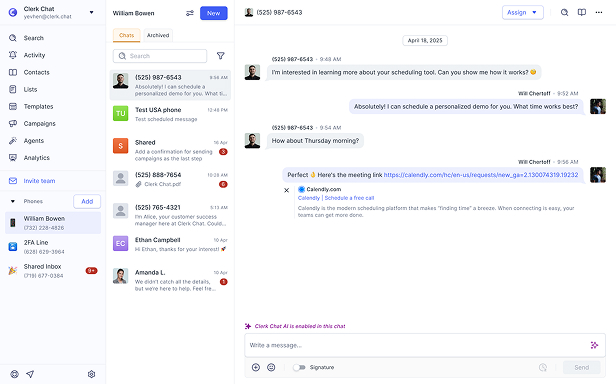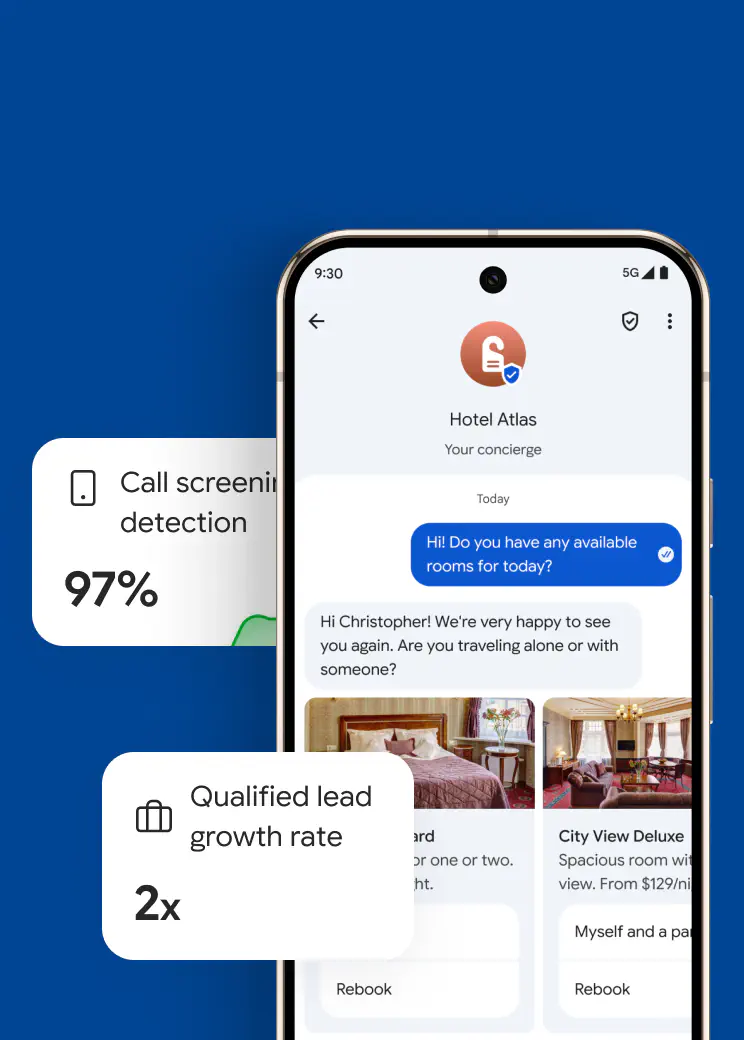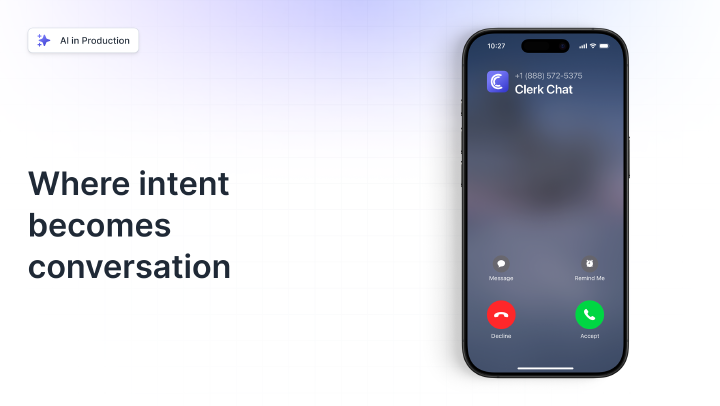AI in Travel and Hospitality: The Journey to Better Service
By William Bowen
- Published: May 26, 2025
Key points in this article:
- AI adoption in the travel and hospitality industry is rapidly increasing as companies strive to meet evolving customer expectations for speed, convenience, and personalization.
- AI-powered chatbots, virtual assistants, and machine learning platforms are improving customer service by offering personalized recommendations, handling bookings, and providing real-time updates on flights and accommodations.
- AI-driven analytics enable travel companies to adjust pricing in real-time based on demand, seasonal trends, and customer preferences, optimising revenue and improving customer satisfaction.
- AI is used for facial recognition at airports, smart baggage handling, and even robotic customer service assistants in hotels and transport hubs, improving efficiency and reducing wait times.
- Despite its benefits, AI implementation faces hurdles such as data management, compliance with ethical standards, and the need for skilled personnel to deploy and maintain AI systems effectively.
The demand for AI in travel and hospitality is growing rapidly as traveler expectations continue to evolve. Today, more than half of Americans say that they only get an average or “below average” experience from travel companies. Clearly, companies need to find a way to deliver faster, more convenient, and more personalized experiences—and fast.
Fortunately, with artificial intelligence, travel industry leaders are unlocking new opportunities. They’re analyzing data faster than ever before to optimize pricing strategies and travel routes, minimizing issues for consumers. They’re turning to conversational AI platforms to deliver 24/7 personalized customer support, and even experimenting with agentic AI.
Ready to discover the potential of AI for reducing turbulence in the travel industry? Here’s everything you need to know about the use cases and opportunities for artificial intelligence in travel.
In this article:
The Rise of AI in Travel and Hospitality
Similar to most industries, the travel and hospitality sector has been experimenting with AI for a while now. Even before the age of generative AI, conversational AI and agentic AI, companies used data-driven platforms to plan travel strategies and analyze insights.
However, in recent years, the use of AI in travel and hospitality has grown. Increasingly advanced tools and models are emerging to address a range of use cases for organizations and their customers. Businesses are embracing the use of AI in customer service tasks, building unique chatbots and virtual assistants to improve customer response times and personalize interactions.
Some organizations are experimenting with AI to improve security systems with tools like biometrics and facial recognition, while others are using AI to enhance SMS marketing and sales campaigns.
The opportunities in the industry are growing so fast that analysts predict the market for AI in the travel industry will reach a value of $13.38 billion by 2030.
Ready to update and automate bookings, pricing adjustments, and check-in processes?
Get startedApplications for AI in the Travel Industry
We’ve already mentioned various ways companies are using AI in travel industry use cases, but if you’re thinking of diving into the AI space yourself, you might be looking for a deeper insight into exactly what this technology is capable of. Here are some of the most impressive and impactful use cases for AI in travel and hospitality.
AI in Travel Customer Experience
Probably the biggest and most versatile area companies are experimenting with when it comes to embedding AI into the travel industry is customer experience. You’ve probably already seen some examples of travel and hospitality companies using AI-powered bots and assistants to support customers with processes like finding flights or accommodation, or planning itineraries.
Platforms like Google Travel and the TripAdvisor site even employ machine learning to create personalized customer plans based on their preferences. With custom chatbots, powered by conversational AI, companies can create hyper-personalized experiences for customers, walking them through processes like finding the right spot for a vacation or booking experiences.
AI tools can even recommend flights based on your unique requirements, or give you tips on overcoming problems, like ensuring you get extra leg room if you’re dealing with an injury. Plus, these tools can offer continuous support throughout the travel journey. For instance, organizations could use AI-powered SMS tools to inform customers when flights are delayed, encourage them to “check in” to a location in advance, and more.
AI bots can also act as always-on assistants, answering questions about hotel amenities, check-in procedures, security requirements, and amenities 24/7.


Boosting Productivity and Enabling Automation
Another significant use case for AI in travel and hospitality is the use of AI to enhance team productivity and automate repetitive tasks. AI tools are excellent for automating a wide range of processes. For instance, as mentioned above, they can reduce customer service response times by automatically answering customer questions on various channels.
AI tools give companies an excellent way to automate sales and marketing campaigns. For instance, companies can use AI tools to rapidly personalize text messages and share custom deals and offers with customers in specific segments.
Companies can even use AI to schedule SMS messages to reach customers at specific times, such as when they arrive at an airport, location, or hotel. For instance, a company using conversational AI for hospitality could schedule a message asking customers to check in to their room as soon as they’re scheduled to arrive at a local airport.
AI can also help employees with other tasks, like accessing customer information, transcribing and summarizing calls, and analyzing data quickly. The result is more efficient, informed teams that can deliver better customer experiences.
AI for Dynamic Pricing and Package Curation
Speaking of the potential of AI in travel industry data analysis, intelligent tools are excellent for helping companies make better decisions about establishing pricing strategies and creating package deals. AI tools can analyze real-time data on hotel availability, flight prices, customer demand, and even local events to create packages specific to customers with certain budgets and preferences.
For instance, a conversational AI customer service tool might recommend a package deal with an affordable hotel close to a specific historical landmark to a budget-conscious traveler interested in local culture. It could even recommend flights in the “off-season” to reduce costs.
Tools like Hopper already excel in this area. They use flight databases and machine learning to predict the best prices for flights and hotels when giving customers personalized travel recommendations.
On a broader scale, companies could use AI in tourism and travel to determine how they should adjust their pricing strategies based on changes in customer demand throughout the year. Airlines, hotels, and companies offering local tours can use AI to dynamically boost their chances of earning higher profits when customers are more likely to spend extra on an adventure.
Unlocking Valuable Insights for Growth
Beyond using data to provide customers with better deals or help companies adjust their pricing strategies, AI can also leverage data for other valuable insights. If you’ve ever explored conversational AI use cases, you’ll know that these tools are excellent for gaining insights into customer trends and preferences. Cutting-edge tools can source data from multiple environments to help companies segment travelers into various groups and personalize their experiences.
Some companies using AI tools for customer support, marketing, and sales even leverage sentiment analysis to learn more about what people feel throughout the buyer journey. AI in travel and hospitality can help companies identify their most loyal customers and what causes a customer to churn or switch to a competitor, helping them take a more proactive approach to growth.
Intelligent tools can also help organizations develop better strategies for communicating with customers. For instance, based on historical data, an AI algorithm could suggest the best time to send SMS transactional messages or promotions to customers on certain days.
Some AI tools can even curate data about market trends and customer preferences from various online resources to help travel and tourism companies identify potentially valuable services and products to boost their profits and revenue.
Powering Robots for Customer Service
We’ve already mentioned some of the ways AI in travel can optimize customer experiences, but one particularly interesting use case involves “robots” that augment business customer service teams. In the past, consumers had to wait in a queue for long periods to get an answer to a question.
Thanks to robotic systems, airports and hotels can now serve a larger number of customers faster than ever before. For instance, there’s a robot in Heathrow airport that can guide customers to the right terminal. There’s even a hotel in Nagasaki (Henn-na) that’s fully staffed by multilingual robots that handle all of the tasks associated with checking in and out.
While robots in the travel and tourism sector won’t eliminate the need for human agents (more on that in a moment), they will make it easier for travelers to get support quickly.
Ready to update and automate bookings, pricing adjustments, and check-in processes?
Get startedAI in Travel: Will AI Replace Humans?
Before you invest in artificial intelligence, whether to power your hotel text messaging system or enhance your customer support strategy, you might wonder what AI will mean to the future of human workers in this industry.
Ultimately, AI in travel and hospitality will automate and streamline much of the work that today’s agents do. They’ll be able to handle things like managing conversational customer engagement, answering questions, and managing booking and check-in processes.
But, this doesn’t mean that human beings will become obsolete. Instead, human employees will be responsible for different tasks in the future. They’ll need to enhance and augment AI systems, refining and optimizing them with data. Human beings will also be responsible for delivering empathetic, personalized customer service experiences during critical moments.
AI might handle a lot of repetitive tasks, but human beings will still need to step in to deliver creative solutions to complex problems, reassure nervous travelers, and handle difficult requests.
Emerging Trends for AI in Travel and Hospitality
The connection between AI and travel is growing stronger every day. Customers are demanding more from every company they work with in the travel landscape, from airlines to hospitality companies and beyond. AI will help organizations live up to these evolving expectations while overcoming a range of common challenges.
In the years ahead, we can expect to see new opportunities emerge. Companies won’t just use AI to enhance SMS marketing for travel agencies or respond to common customer questions. They’ll use AI for innovative baggage handling strategies, improving airport efficiency. Companies like SITA are already leveraging the benefits of AI to automate baggage checking processes.
Businesses will create even more robots and voice assistants, capable of acting as always-on assistants to support customers through every stage of their journey. Additionally, the rise of agentic AI will lead to more advanced assistants that can hyper-personalize every experience.
Agentic AI systems will be able to plan customer itineraries, book services on their behalf, send business messages when delays and issues occur, and resolve problems, all without human intervention. Notably, though, there are still challenges to overcome.
The Challenges of AI Implementation In Travel
Even with countless benefits to explore, the growth of AI in the travel industry still comes with some challenges. Businesses need to take a comprehensive approach to overcoming issues like:
- Complex technologies: Many advanced AI solutions require specialized skills and knowledge to implement. Fortunately, new platforms are emerging that make it easier to use AI for everything from intelligent texting for business communications to always-on conversations. These straightforward platforms, combined with a comprehensive approach to AI training, will help teams adopt AI faster.
- Data management: AI systems thrive on large volumes of accurate data. To make the most of their new technologies, travel and hospitality companies need to align data from multiple sources, clean it, and implement robust strategies to keep that data secure. Make sure your AI systems can easily integrate with all of your data sources, from the tools you use for group texting to your CRM, to access the latest data insights.
- Ethics and compliance: Although customers are increasingly open to interacting with AI tools, they want companies to be transparent about how they’re using these systems. Make sure you’re clear with customers about how you use AI apps, how you manage and store their data, and how you plan to protect them from privacy issues.
Soaring into the Future with AI in Travel
Demand for AI in travel and hospitality is growing. Today’s consumers want more personalized, convenient, and efficient experiences, whether booking flights or planning journeys. AI gives companies the power to enhance every customer experience at scale, while keeping costs low.
AI can revolutionize how you grow your travel organization. It can help you design better marketing and sales strategies, automate complex tasks, enhance customer service, and even unlock valuable insights.
Ready to explore the opportunities for yourself? Clerk Chat offers companies a convenient platform for leveraging conversational AI for everything from marketing to customer support. With our integration-friendly platform and cutting-edge tools, you can differentiate yourself from the competition, delight your customers, and increase sales.
Start your journey into the future of travel with Clerk Chat today.
Will’s latest superpower is building innovative AI solutions to add value for clients. He's passionate about all things AI, entrepreneurship, and enjoys staying active with sports and outdoor activities.
In this article:
Ready to use your business number for text messaging?
Thousands of businesses are already experiencing the power of conversational messaging through SMS. Join us. Free trial and paid tiers available.
Get Started#Subscribe
Get product updates in your inbox
Tutorials, features, and Clerk Chat news delivered straight to you.



